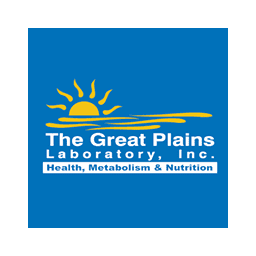Diagnostic testing in North Brisbane - Redcliffe - Newport - Scarborough- Margate, Woody point - Sandgate -North Lakes - Narangba -Chermside - Aspley

We have an extensive range of laboratory and interclinical testing tools. Our Partner Laboratories are




Laboratory testing will help You and us to identify the root cause of your problem and allow us to create
a strong treatment plan for you with targeting precision and great outcomes.
Recognising that chronic illnesses are on the increase despite the progress of traditional Western medicine; These Labratories seek to adopt an integrative, or functional, medical approach that supports the health and vitality of the individual.
There are hundreds of available test from our partner’s Integrative Pathology Services
- Candida and Leaky Gut
- DNA Testing.The results provide unique information to guide personalised dietary recommendations for optimal health and disease prevention. The outcomes of these tests provide opportunities to manage wellness by:
- Optimising energy, wellbeing and health
- Making better lifestyle and dietary choices
- Using supplements tailored to offset a particular deficit in nutrition or genetic predisposition
- Food Intolerances
- Organic Acid test
- The Organic Acids Test (OAT) offers a comprehensive metabolic snapshot of a patient’s overall health with over 70 markers
- Female/ Male hormone Profile / Dutch complete DUTCH testing offers the most extensive profile of sex and adrenal steroid hormones, along with their all-important metabolites
- Thyroid function test
- Stool and parasitology testing
- Neurotransmitter testing
- Pyrroles & MTHFR – Genetic Testing
- Sibo Testing
Inter clinical :
- Iris and Sclera assessment
- Neurotransmitter questionnaires
- Health appraisal
- Zinc status
- Nail and Tongue diagnosis
- PH status
- Posture check
Laboratory testing will help You and us to identify the root cause of your problem and make a tailored treatment plan for you which can be at any time reviewed and retested to see your progress.
There are over 100 available test from our partner’s Integrative Pathology Services : https://www.nutripath.com.au/
- Candida Anti bodies and yeast culture
- Food Intolerances
- Basic Female/ Male hormone Profile
- Estrogen metabolites
- Thyroid function test
- Stool and parasitology testing
- Neurotransmitter testing
- Pyrroles & MTHFR – Genetic Testing
- Multi-Analytic Cancer Profile – a new comprehensive profile that quantitatively measures 3oo cancer related proteins, which can help accelerate the pace of discovery, alidation and translation of cancer bio markers for early detection, patient stratification and therapeutic monitoring. The test is ideal for a. Monitoring after surgery. b. risk monitoring c. early cancer protection.
Inter clinical :
- Iris and Sclera assessment
- Food allergy testing
- Neurotransmitter questionnaires
- Health appraisal
- Zinc status
- Nail and Tongue diagnosis
- PH status
As practitioners and parents, we know that food allergies and Food intolerances are prevalent amongst our children and seem to be more so than earlier generations. But which foods cause the most concern? And really how common are food allergies and intolerances?
An analysis of Growing Up in Australia: The Longitudinal Study of Australian Children has provided some answers. Two age groups were investigated: 6-7-year olds and 10-11-year olds. The strongest association with food allergy was co-existent eczema. In both age groups, those with eczema had up to seven times the chance of having a food allergy than children without eczema.1 Meanwhile, younger children with asthma had a nearly three times greater chance of having a food allergy than those without asthma.1
Interestingly, the highest prevalence of food allergy was in children who had solids introduced at 4-6 months of age, and the lowest was in children who had solids introduced before four months.

 We know, as practitioners, and for those of us who are parents, that parenthood can be stressful, especially regarding nutrition. There are food likes and dislikes, allergy-based food avoidance, and parental food education differences that come into play. The result is often sub-optimal nutritional status. For example, in 2014-15, only 5.4% of Australian children aged 2-18 years ate the recommended daily servings of fruits and vegetables. Add to this environmental toxin exposure, stress in the home and increasing availability of convenience foods, coupled with inactivity, and we are seeing rising levels of chronic health conditions in children, along with higher levels of
We know, as practitioners, and for those of us who are parents, that parenthood can be stressful, especially regarding nutrition. There are food likes and dislikes, allergy-based food avoidance, and parental food education differences that come into play. The result is often sub-optimal nutritional status. For example, in 2014-15, only 5.4% of Australian children aged 2-18 years ate the recommended daily servings of fruits and vegetables. Add to this environmental toxin exposure, stress in the home and increasing availability of convenience foods, coupled with inactivity, and we are seeing rising levels of chronic health conditions in children, along with higher levels of
anxiety, neurodevelopmental conditions,food intolerances, allergies, and eczema.
